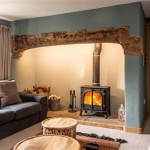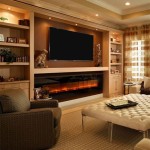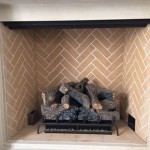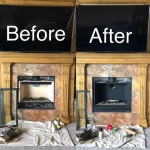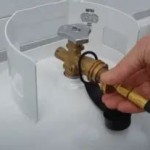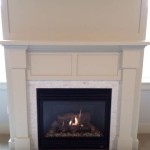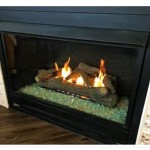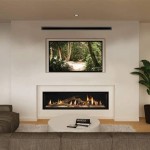Free-Standing Gas Fireplaces: Exploring the Essential Features of Direct Venting
Fireplaces have long been a beloved addition to homes, providing both warmth and ambiance. With the advent of gas fireplaces, homeowners have gained the convenience of gas fuel without sacrificing the charm of a traditional fire. One popular type of gas fireplace is the free-standing direct vent model, which offers versatility and efficiency in one package.
In this guide, we will explore the essential features of free-standing gas fireplaces with direct venting, examining their benefits and considerations. Whether you're considering adding a fireplace to your home or simply want to learn more about this heating option, this article will provide you with valuable insights.
What is Direct Venting?
Direct venting refers to a system in which the fireplace draws combustion air directly from the outside and vents the exhaust gases outside as well. This eliminates the need for a traditional chimney, making direct vent fireplaces more flexible for installation in various locations within your home.
The direct venting system typically consists of two pipes: an intake pipe that draws air from the outside and an exhaust pipe that vents the combustion gases. These pipes are usually concealed within the wall or ceiling, providing a clean and unobtrusive appearance.
Benefits of Direct Vent Free-Standing Gas Fireplaces
Free-standing direct vent gas fireplaces offer several advantages over traditional fireplaces and other types of gas fireplaces:
- No Chimney Required: As mentioned earlier, direct venting eliminates the need for a chimney, providing greater flexibility for installation.
- Increased Efficiency: Direct vent fireplaces use a closed combustion system, which means that the combustion air is drawn from outside and the exhaust gases are vented outside. This results in higher combustion efficiency and reduced heat loss.
- Improved Indoor Air Quality: Direct vent fireplaces do not draw air from the room for combustion, which means they do not contribute to indoor air pollution.
- Versatility: Free-standing direct vent gas fireplaces can be placed anywhere in a room, making them a versatile heating option for any decor.
Considerations for Installing Free-Standing Direct Vent Gas Fireplaces
While free-standing direct vent gas fireplaces offer many benefits, there are also some considerations to keep in mind before installing one:
- Professional Installation: Direct vent gas fireplaces require professional installation to ensure proper venting and safety.
- Clearance Requirements: There are specific clearance requirements around the fireplace to prevent overheating or fire hazards.
- Ventilation: The room where the fireplace is installed must have adequate ventilation to provide sufficient combustion air.
- Fuel Source: Free-standing direct vent gas fireplaces require a natural gas or propane fuel source.
Conclusion
Free-standing direct vent gas fireplaces are a convenient, efficient, and versatile heating option for homes. By understanding the essential features of direct venting, you can make an informed decision about whether this type of fireplace is right for you.
With their ability to enhance the ambiance of any room, provide warmth, and improve indoor air quality, free-standing direct vent gas fireplaces offer a range of benefits that make them a valuable addition to any home.

Lennox Visions Elite Series Direct Vent Freestanding Stove

Direct Vent Gas Stoves In Dc

Kozy Birchwood 20 Gas Stove Fireplace S Hearth Home

Heat N Glo Paloma Direct Vent Gas Stove

Kozy Birchwood 20 Gas Stove Fireplace S Hearth Home

Gas Direct Vent Stoves S Service Whole Main Street Fireplace Suffolk Long Island

Freestanding Gas Stoves Stove Fireplaces Napoleon

Lakefield Xl Direct Vent Freestanding Gas Fireplace Stove Kozy Heat

Marquis Titan Free Standing Direct Vent Gas Stove Toronto Home Comfort

Oxford Direct Vent Gas Stove The Place
Related Posts

